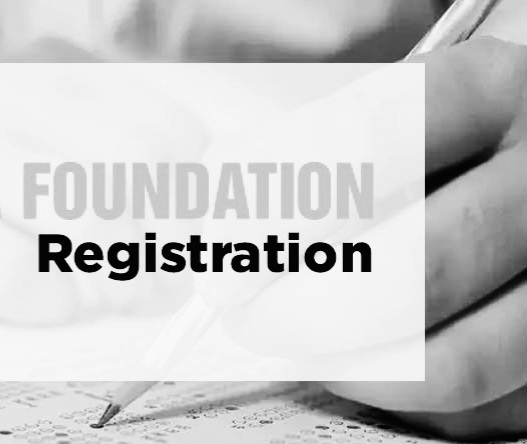HOW TO REGISTER A CHARITABLE TRUST OR FOUNDATION IN KENYA.
A foundation is a type of non-profit organization that is usually established to provide funding and support for charitable, educational, religious, or other philanthropic purposes. Foundations are often endowed with a significant amount of financial resources, and they use the income generated from their endowments to fund projects and initiatives aligned with their mission.
Private charitable foundations in Kenya are mainly incorporated as companies limited by guarantee because the owners enjoy the benefit of limited financial liability. Such foundations are also granted income tax and other tax exemptions on application.
A charitable foundation under Kenyan laws can be established either as:(a) a company limited by guarantee; or (b) a charitable trust.
- Incorporation of company limited by guarantee
A company limited by guarantee under the Kenyan Companies Act can be incorporated either with or without share capital. However, in most cases companies limited by guarantees are incorporated without share capital. A company limited by guarantee maybe a private company or a public company. A private company must have a minimum of 2 and a maximum of 50 members. On the other hand, a public company must have a minimum of 7 members but there is no statutorily prescribed maximum number of persons.
Private companies enjoy a number of privileges including an exemption from the requirement to file annual accounts at the Companies Registry. Although incorporation of a company limited by shares in Kenya is a relatively straight-forward process, incorporation of charitable companies is a lengthy process due to security verifications that are conducted against the promoters of such a company before incorporation.
Procedure of incorporation
A summary of the information required for the purposes of incorporation are set out below;
- An application is made to reserve the proposed name with the Registrar. The Registrar has the right to reject names he considers undesirable or which are similar to the names of existing companies. It is therefore advisable to apply for 2 or 3 alternative names. The name must include the word “Limited”. However, this requirement can be dispensed in case of charitable companies (essentially companies limited by guarantee)
- Preparation of the Memorandum and Articles of Association of the company. The Memorandum sets out the objects of the company in detail. In the case of companies limited by guarantee, the Companies Act require the memorandum of association to state the minimum amount which each member guarantee to contribute to the assets of the companies in the event of liquidation and this amount is left at the discretion of the promoters. It is necessary to set out all the anticipated activities of the company as part of its main objects of association. The Articles will contain the regulations for conducting the company’s affairs. It will be necessary to consider various matters including: the size of the board of directors, the quorum for meetings of members and directors, whether the directors are subject to retirement by rotation, any special rights conferred on members to appoint directors etc.
- The Memorandum and Articles of a private charitable company must be signed by at least 2 persons who state the minimum amount they undertake to contribute in the event of liquidation of the company.
- The Memorandum and Articles and a Statement of the Nominal Capital are then lodged for stamping with duty.
- After stamping, the documents are presented to the Registrar of Companies together with the following prescribed forms:
- (a) Particulars of the registered office. The full physical and postal address of the registered office must be supplied. This includes the land reference number.
- (b) Particulars of the directors and company secretary including their full names, usual postal address, nationality and business occupation. It is usual to have a minimum of 2 directors. There are no unusual restrictions as to who may be appointed a director. In particular, there is no requirement that a director be a resident or citizen of Kenya. Companies may also act as directors.
- (c) A Declaration of Compliance by the advocate attending to the incorporation of the company.
- For companies limited by guarantee, the documents are usually forward to the Director of National Intelligence Service in order to carry out further investigation and inquiries on the objects of the proposed company. This process may take 2 to 3 months and if the National Intelligence Service approves the incorporation of the proposed company, these documents are sent back to the Registrar of Companies for incorporation.
- Incorporation is complete when the Registrar issues a Certificate of Incorporation which must be displayed at the registered office. At this stage, the Attorney General will usually exempt the company from using the word “limited” as part of its name.
b. Incorporation of a foundation under the Trustees (Perpetual Succession) Act
Under the laws of Kenya, a foundation can be incorporated under the Trustees (Perpetual Succession) Act (Chapter 164 of the Laws of Kenya). Section 4(1) provides that Trustees who have been appointed by any body or association of persons established for any religious, educational, literary, scientific, social, athletic or charitable purpose, or who have constituted themselves for any such purpose, may apply to the Minister for a certificate of incorporation of the trustees as a corporate body.
The registration requirements of a charitable trust or a foundation in Kenya generally requires the following:
- Name of the Trust or Foundation.
- Main Objective of the Trust. A charitable trust must fall in at least one of the following categories: Advancement of religion; Advancement of Health or saving of lives; Advancement of environmental protection or improvement; Advancement of education; Advancement of Health or saving of lives; Advancement of environmental protection or improvement; Relief of poverty e.g. homes & orphanages, hospitals; Trusts beneficial to the community not falling under the preceding heads e.g. advancing art, culture, racial harmony.
- Name of the Settlor/ Donor. (Specify if donor is an individual or company, local or foreign) including Full name, copy of ID card/passport; If company, a copy of the certificate of registration; Address; Domicile and residence; Nationality; Occupation; Number of Shares in the Trust; KRA PIN;ID number; Passport photo.
- Beneficiaries: These could be a class of persons in the society such as widows, orphans and vulnerable children, bright children from poor backgrounds etc. There is also need to specify the area of benefit e.g. Nairobi, Kenya or Africa
- Trust Fund: A list of assets held by the trust/ in the absence a deed of donation indicating the properties to be donated to the trust; A letter/statement from the donor stating his/her commitment and the transfer of properties/ funds may be progressive but indicate the initial amount/properties to be transferred.
- Trustees: The trustees should show competence in running the trust.
The following information is required from the trustees:
- Names and addresses in full of the persons to act as trustees.
- Passport photos of the trustees
- Copies of KRA PIN certificates of Trustees
- Copies of national ID or Passport.
- Curriculum vitae of the trustees.
- Statement of their accounts.
- Minutes appointing the trustees.
- Petition to the minister.
- Seal of the trust.
- Statement of donor funding where applicable.
- Financial statement of the trust or foundation.
- Administration of the Trust: Additionally, it is important to consider whether standard procedures are appropriate or if there are any special administrative procedures required.
Below are the Administrative procedures in the registration of a foundation:
- Appointment of trustees.
- Operation of Trust accounts.
- Powers of the trustees.
- Procedure of conducting meetings.
- Amendment of the Trust deed.
Registration of a charitable trust may involve two stages:
a. Registration under the Registration of Documents Act(RDA)
Registration under the RDA does not make a trust into a body corporate. However, the trust can commence implementing the objects of the trust as a simple trust.
b. Incorporation under the Trustees (Perpetual Succession) Act (TPSA)
After registration under the registry of documents, a certified copy of trust deed and a petition for incorporation is lodged with the Ministry of Lands for incorporation of trust. The Trust may be incorporated under the TPSA, making it a body corporate.
Contact GND Consult for registration of all forms of charitable entities in Kenya.
- +254 702 001 770
- info@gndconsultants.com




I just need aid in registration of a foundation I have the capacity of doing charity work and many more
Dear Alloysius,kindly contact us on +254 702 001 770 or
info@gndconsultants.com